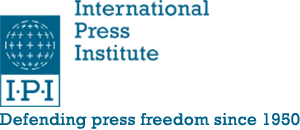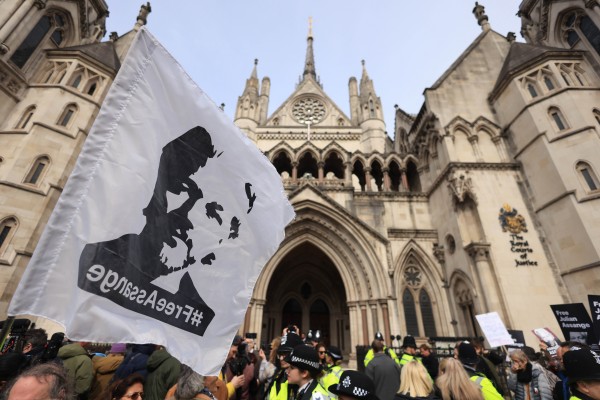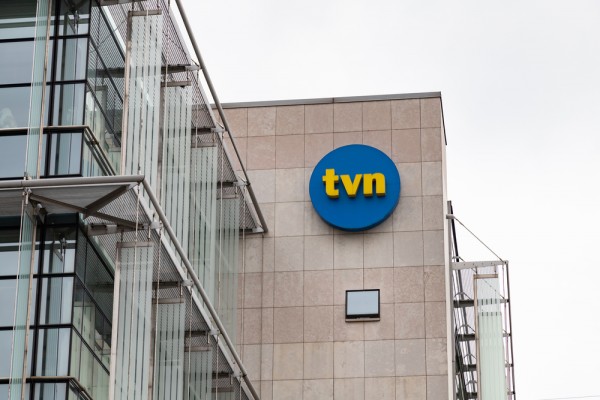Leading editors from within the International Press Institute’s (IPI) Central Europe Independent Media Network have today published an open letter calling on EU bodies to pass a strong and effective European Media Freedom Act (EMFA) which helps safeguard independent journalism and roll back media capture across the bloc.
Read the full open letter below
To the Council of the European Union, the European Parliament and the European Commission,
As leading media organizations in Central Europe and as members of the International Press Institute (IPI) regional media network, we call upon the European Union institutions to negotiate a strong and effective European Media Freedom Act (EMFA) that can counter media capture and protect editorial independence and media pluralism across Europe.
Media freedom is in crisis in many EU countries as populist governments and oligarchs collaborate to misuse powers of the state to bolster propaganda and drown out independent media critics. Public broadcasters are turned into propaganda platforms while media regulators are captured by political appointees denying or removing licenses and imposing fines on critical media. State advertising is directed to their allies in the media and oligarchs are rewarded for their media’s loyalty with lucrative state contracts in other industries. Meanwhile the courts are abused to silence journalists through vexatious lawsuits; security agencies and non-state actors target investigative journalists with spyware; and politicians encourage armies of social media trolls to create a hostile and intimidating climate for journalists.
After years of inaction, we congratulate the European Commission for producing the Media Freedom Act as a blueprint for how media capture can, and must, be addressed, if the media freedom crisis is not to deepen and spread.
This network represents editors of leading independent media often working within captured media landscapes. We fully endorse the ambitions of the media freedom act which, if strengthened further, can have a transformative impact on media freedom.
We are concerned that some vocal critics of the EMFA from EU countries that enjoy high levels of media freedom and are not familiar with the threat posed by media capture have lobbied against the EMFA, arguing that it cannot solve the crisis of media capture in Central and Eastern Europe and that it is, in itself, a threat to media freedom.
We reject this position.
Rather:
- We endorse the provisions under Art 6.1 of the draft EMFA for full transparency of media ownership, including beneficial ownership and declarations of potential conflicts of interests. We call for it to go further and to extend transparency requirements to all financial relations with the state including and in particular of state contracts in other industries with companies within the same business grouping as the media.
- We endorse the provisions for safeguarding editorial independence in Article 6.2. The current draft enables publishers to set the overall editorial line while enabling editors the freedom to take individual decisions. Such a mechanism is essential for ensuring the integrity of the newsroom and to protect it from owners who may seek to unduly misuse their media to further their vested economic or political interests.
- We insist that the European Board for Media Services (EBMS) must be fully independent of the European Commission and that provisions in the EMFA must be strengthened to ensure that all National Regulatory Authorities are fully independent of national governments.
- We endorse the role of the EBMS in protecting media pluralism and editorial independence among news media across the European Union and in particular insisting that all media mergers are subject to a media pluralism test.
- We endorse the demands for transparency and fair and objective criteria for the distribution of state advertising funds. We ask that transparency requirements should be extended to publishing all state contracts with companies that are part of a business grouping with news media.
- We endorse protections of editorial independence outlined in Article 4 and in particular efforts to end the abuse of spyware, which threatens the work of journalists. We call for Article 4 to be significantly strengthened so that it meets the standards established by the case law of the European Court of Human Rights on the protection of sources.
- And we endorse the provisions to protect the independence of public service media, so often the first target of populist governments seeking to capture and control the media narrative.
We believe these measures, had they been in place ten years ago, could have substantially slowed or mitigated the process of media capture in Hungary and Poland. We also believe these measures introduced today can substantially help counter media capture in countries that are on a similar trajectory but are not yet fully captured.
The EMFA should be further complemented by a strong Anti-SLAPP Directive that is able to protect journalists from abusive lawsuits used by the powerful to silence investigative reporters and financially crush critical media.
While we would rather live without Europe-wide media regulation, the depth of the crisis facing Europe’s newsrooms today demands concrete and robust political action. Regulation that sets the highest standards of protections for media freedom is essential if we are to end the downward spiral of political capture of Europe’s newsrooms.
While there is no doubt that the EMFA must be rigorously drafted to protect against unforeseen consequences, we cannot afford to miss this opportunity to establish EU wide standards of protection for media.
European elections are due in under 12 months and their ability to deliver fair and democratic results will, in part, be measured by public access to pluralistic media, independent of political or vested interests. With this in mind, now is not the time for delay nor complacency. Europe needs a strong EMFA today.
Signatories:
Piotr Stasiński, Gazeta Wyborcza Poland
Beata Balogova, Daily SME, Slovakia
Libertatea Newsroom, Romania
Alexei Lazarov, Capital, Bulgaria
Vojtěch Berger, HlídacíPes.org, Czech Republic
Ali Žerdin, Sobotna priloga, Delo, Slovenia
Márton Kárpáti, Telex, Hungary
Peter Bárdy, Aktuality.sk, Slovakia



